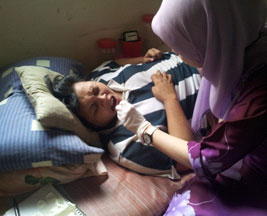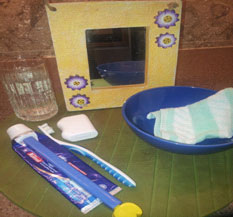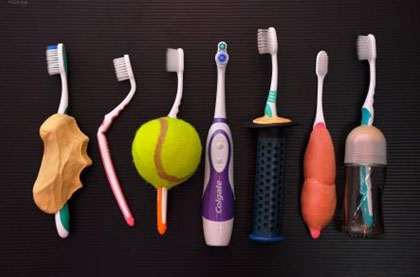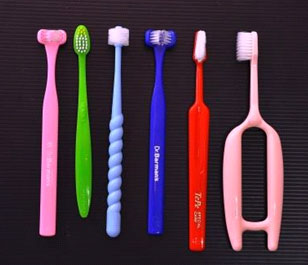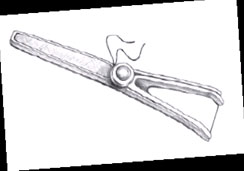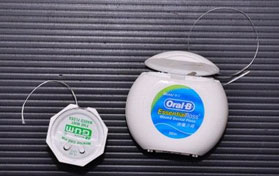Introduction
Before addressing this topic in great details, you may wonder what does it mean by intellectual disability and how would it be related to oral or dental care?
Another term which is often used to explain this condition is mental retardation or learning disability. Subsequently, you would relate it to the type of disabilities which affect the mind and thinking. However, intellectual disability poses limitations (depending on the severity) in intellectual functioning and adaptive behaviour of the affected person. They may not be able to perform daily routine activities which involve everyday practical and social skills. This is usually be detected before the age of 18 years old.
There is a need to emphasize the importance of oral or dental health for general health well-being. It is crucial to be meticulous especially when performing oral hygiene tasks for people with intellectual disabilities. Tooth brushing can be a challenging task for them or their caregiver to perform due to unfavourable reasons such as behavioural and manual dexterity issues. Tooth decay, bad breath, swelling and infected gum are common oral problems in this vulnerable group of population. As a caregiver or guardian to a person with intellectual disabilities, you need to realize that these oral problems, although may not be significant, can lead to more complex and poor overall health status if continuously being neglected. Therefore, with good oral or dental care at home, these oral diseases can be prevented and may reduce the number of visit to dental clinic. This will also help them to enjoy a better quality of life despite of their disabilities.
Simple task such as tooth brushing may also pose significant challenge to the caregiver. It may be caused by some behaviour challenges such as crying, wiggling or kicking. The rest of this article will discuss tips for the carer to perform oral hygiene tasks with a goal to achieve good oral hygiene result.
Tips To Perform Oral Hygiene Tasks
Here are some tips for the carers to accomplish when performing oral hygiene task for the person under their care. It is recommended to start the task at a very young age to influence good habit. Nevertheless, it is never too late to begin at any stage if you have never done it before. However, ideally it is not a single person goal as it requires time, patience and support from every member of the family for successful achievement.
|
STEP |
RECOMMENDATION |
|
|
1. |
Manage the challenging behaviour |
‘Tell-show-do’ approach Tell : Tell what you are going to do to them step by step. For example : ‘I am going to help you clean your teeth today. I will use this special toothbrush and a special paste too. You can feel the brush if you like.’ Show : Show the person how the brushing or flossing is done using a doll, puppet, dental model or even on someone else if possible. Let him/her try it as well. Do : You can ask him/her to try it on him/herself if he/she is able to do it. You can also hold the brush with them and do it together. Start gently with small and short stroke until they feel comfortable with the task. Do it in a routine, at the same time (at least twice a day), same place and same techniques. You can turn on the music or TV or let them hold their favourite toy while brushing/flossing. Make cleaning the mouth as a fun activity at home. Praise the person for good behaviour. Initially, you may have to ignore the negative behaviour. Don’t get frustrated easily. You may expect them to be more co-operative as they become familiar and comfortable with the task. |
|
2. |
Set the location |
Bathroom is not the only place to brush the teeth. It can be done at the living room or at the dining table. Identify the location where the person enjoys doing other activities as well. However, before brushing/flossing is done, be prepared with all the materials required such as toothbrush, toothpaste, face towel, a glass of water, a bowl for the person to spit and a face mirror. Everything must be within your reach so that you can save time and be more efficient. |
|
3. |
Brushing technique |
If you need to brush their teeth, wash your hands thoroughly and if possible to use a pair of gloves. They can be introduced with a powered toothbrush which can do the job easily or use a modified toothbrush which suits the person’s need, as shown on the pictures below. Toothbrush with soft bristle is preferable. Change the toothbrush at least every 3 month or when the bristles have flared up. Talk to your dentist regarding options of modified toothbrush. Place a pea-sized toothpaste on the toothbrush. Choose the toothpaste with fluoride. Fluoride is important to prevent tooth decay. If they cannot tolerate toothpaste, please consult your dentist to find out what are the other available options. You can brush the teeth from back to front but make sure you clean every surface of the teeth. Brush the tongue gently after brushing the teeth. The tongue can be cleaned with the brush itself or a tongue scrapper. Let them rinse with water and spit it out or gently wipe the teeth with damped cloth if they are not able to rinse and having swallowing problems. |
|
4. |
Flossing |
|
|
5. |
Positioning |
You must be in the position where you can see the person’s teeth. If the person you are helping is sitting on the chair, it may be easier for you to sit or stand behind the chair and slightly tilt the head backward to improve your vision. You can ask them to lie down on your lap or on a bean bag as well while you are brushing their teeth. |
|
6. |
Regular dental visit |
Regular dental visit is important. Take them to see the dentist at least once in 6 months as you may miss any dental problem that you are not familiar with. |
|
7. |
Rinsing after meal |
Train them to rinse with plain water after every meal to remove gross food debris. |
|
8. |
Dietary control |
Avoid rewarding them with sugary treat such as sweets/candy or canned/soft drink for good behaviour. These products can lead to tooth decay and other medical problems especially with poor control. |
| Last Reviewed | : | 20 March 2015 |
| Writer | : | Dr. Siti Zaleha bt. Hamzah |
| Accreditor | : | Dr. Norjehan bt. Yahaya |
| Reviewer | : | Dr. Siti Zaleha bt. Hamzah |


